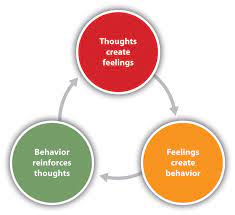Cognitive behavioural therapy for alcohol addiction treatment
Apr 04, 2023
This paper explores the efficacy of Cognitive Behavioural Therapy (CBT) as a method of treatment for alcohol addiction. CBT is a psychotherapeutic approach that targets an individual’s maladaptive beliefs and behaviours by helping them to identify patterns in their thoughts, feelings, and behaviour so that they can learn how to modify these patterns to help cope with stressors more effectively. In comparison to other treatments such as medication-assisted therapy or 12-step support groups, CBT has been found to be more effective in reducing relapse rates among those suffering from alcohol addiction.
The research on the effectiveness of CBT for treating alcohol addiction has been conducted over many years and has consistently shown positive outcomes for patients. The most common form of CBT used to treat alcohol addiction is called “Relapse Prevention Therapy” (RPT). This therapy focuses on identifying triggers for alcohol use and developing coping strategies to manage them. The goal of RPT is to help individuals recognize and prevent potential drinking cues that could lead to relapse. Research has shown that individuals who receive CBT for alcohol addiction are more likely to abstain from alcohol for longer periods of time than those who did not receive the treatment.

CBT also helps individuals focus on their goals and develop a plan for achieving them, which can be helpful in maintaining sobriety. In addition, CBT teaches problem-solving skills which can help individuals modify their behaviour in order to cope more effectively with stressful situations they may encounter in the future.
Overall, the research into the efficacy of CBT as a method for treating alcohol addiction has been promising and suggests that this form of treatment can be an effective component of an overall recovery plan. While further research is needed to better understand which factors contribute to successful outcomes from CBT intervention, it appears that this type of therapy can offer real benefits for those struggling with alcohol addiction. As such, it should be considered by those seeking help in recovering from their alcohol use disorder. Additionally, clinicians should consider incorporating CBT interventions as part of their standard practice when working with individuals who are striving to achieve sustained sobriety.
